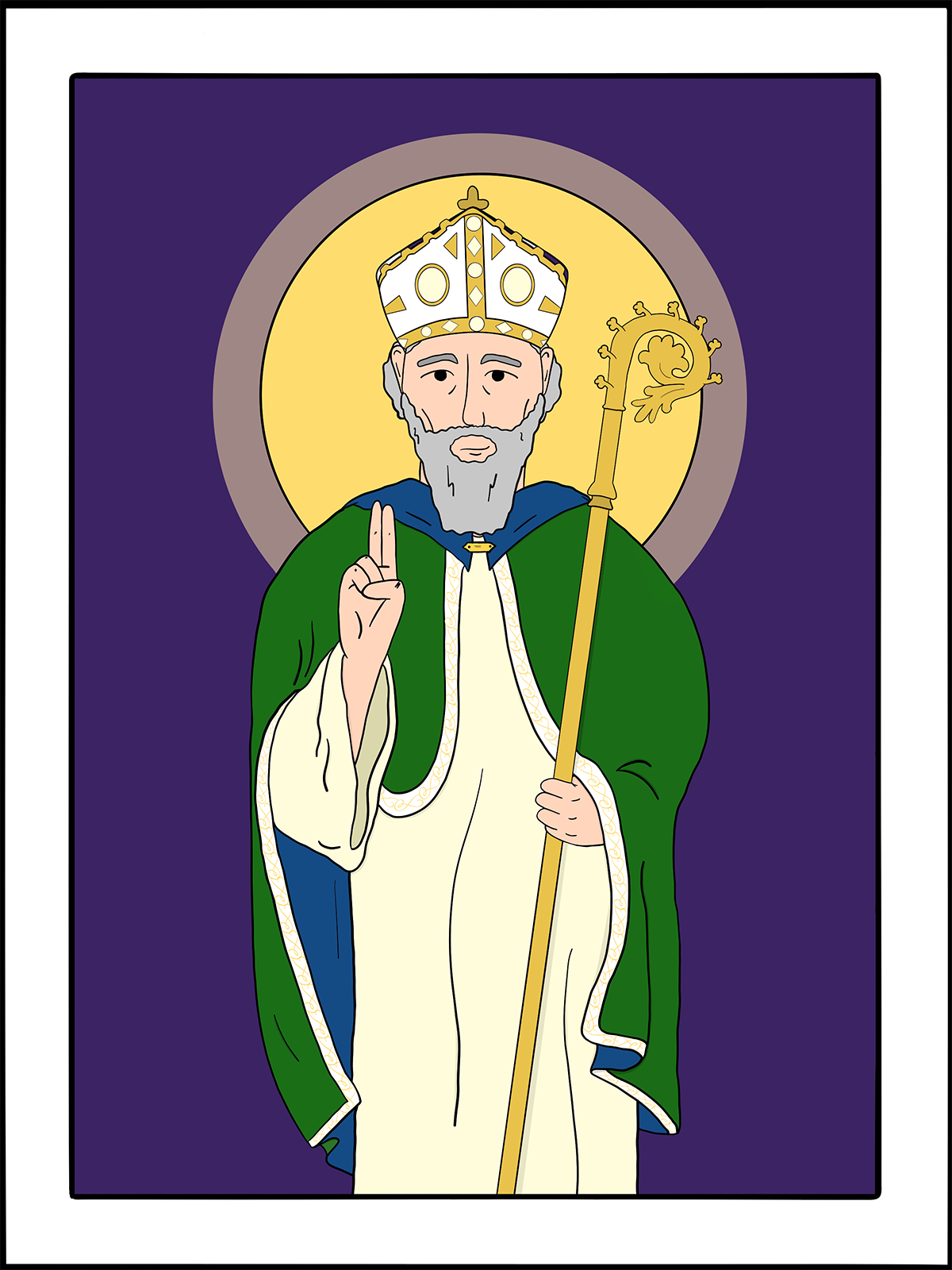
January 19
Wulfstan of Worcester
Bishop, 1095
art by Rev. Kirsten Kohr of Uhrichsville, OhioAlmighty God, whose only-begotten Son led captivity captive and gave gifts to your people: Multiply among us faithful pastors, who, like your holy bishop Wulfstan, will give courage to those who are oppressed and held in bondage; and bring us all, we pray, into the true freedom of your kingdom; through Jesus Christ our Lord, who lives and reigns with you and the Holy Spirit, one God, for ever and ever. Amen.
Wulfstan was one of the few Anglo-Saxon bishops to retain his see after the Norman Conquest of England in 1066. Beloved by all classes of society for his humility, charity, and courage, he was born in Warwickshire in about 1008 and educated in the Benedictine abbeys of Evesham and Peterborough. He spent most of his life in the cathedral monastery of Worcester as a monk, prior, and then as bishop of the see from 1062 until his death on January 18, 1095. He accepted the episcopate with extreme reluctance, but having resigned himself to it, he administered the diocese with great effectiveness. As bishop, he rapidly became famous for his continued monastic asceticism and personal sanctity.
Even though Wulfstan had been sympathetic to King Harold of Wessex, he was among those who submitted to William the Conqueror at Berkhamstead in 1066. He therefore was allowed to retain his see. At first, the Normans tended to disparage him for his lack of learning and his inability to speak French, but he became one of William's most trusted advisers and administrators and remained loyal in support of William I and William II in their work of reform and orderly government. He assisted in the compilation of the Domesday Book and supported William I against the rebellious barons in 1075. William came to respect a loyalty based on principle and not on self-seeking. Archbishop Lanfranc also recognized the strength of Wulfstan's character, and the two men worked together to end the practice at Bristol of kidnapping Englishmen and selling them as slaves in Ireland.
Because he was the most respected prelate of the Anglo-Saxon Church, Wulfstan's profession of canonical obedience to Lanfranc, William the Conqueror's Archbishop of Canterbury, proved to be a key factor in the transition from Anglo-Saxon to Anglo-Norman Christianity. William's policy, however, was to appoint his own fellow Normans to the English episcopate and by the time of William's death in 1087, Wulfstan was the only English-born bishop still living.
Excerpted directly from “Lesser Feasts and Fasts 2022,” p. 46-47.
Lessons and Psalm Genesis 12:1-9
Psalm 84:7-12
John 15:5-16
Preface of Baptism

